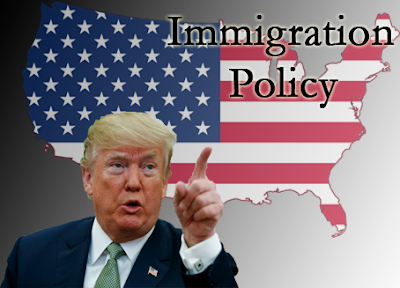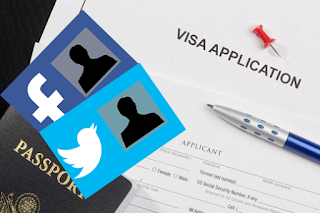Despite the currently tenuous diplomatic relationship between the Philippines and the United States, there is little reason to believe that Filipino immigration to the U.S. will be jeopardized. While many of Filipino President Rodrigo Duterte’s recent comments and actions—such as referring to U.S. President Barack Obama as a
“son of a whore” who can “go to hell” and shortly thereafter forging
a robust economic partnership with China, to the dismay of the U.S. government—have raised questions about the future of Filipino-American relations, the countries’ bond runs much deeper than that of their current leaders.
The Philippines and the U.S. have endured rocky diplomatic periods in the past. Through these times, Filipino immigration to the U.S. has remained a constant, occurring in various legal forms since the turn of the nineteenth century, and even serving as a tool to mend differences.
The Philippines was the U.S.’s first colony, purchased in 1898 from the Spanish (for $20 million). Shortly thereafter, violence between the nations struck. For example, in 1899, American troops outside of Manila killed three Filipino dissenters—who were advocating for independence—sparking three years of fighting that ended the lives of at least 20,000 Filipino rebels and 4,000 American soldiers.
At the time, the U.S. wished to avoid the public backlash that arose out of the conflict. It was eager control the narrative of its occupation—to portray itself as a liberator—and in part it saw immigration as a means to do so. In addition to establishing and controlling media, improving healthcare systems, and building public schools—through which the Americans could teach students about its government and principles—it began to sponsor Filipino students, often referred to as “pensionados,” to study in U.S. colleges and universities.
This initiated two trends in Filipino-American relations: 1) immigration occurring even in hard times, and 2) the U.S. responding to diplomatic issues and outright conflict by cultivating goodwill through immigration opportunities.
The U.S. has consistently had various commercial and geopolitical interests—ranging from economic partnerships to strategic military positioning—that has made a relationship with the Philippines practical. One of the ways the U.S. has cultivated and maintained a generally productive relationship with its Eastern ally—and in the process served its interests—is through immigration.
The U.S. has long seen Filipino labor as a necessary and exploitable resource. Beginning in 1906, and for decades to come, Filipino laborers migrated to the U.S. Like today, they mostly headed to California and Hawaii, where they worked on farms and plantations. Life was often difficult for these laborers, with many working for low wages in the agricultural sector, in canneries, and in the especially unenviable job of building railroads. However, they often persisted through hardship, remaining in the U.S. It is perhaps unsurprising that in both California and Hawaii, Filipinos currently make up the largest Asian minority group.
Today, there are roughly four million American citizens of direct Philippine descent in the U.S., with that number rapidly growing. Meanwhile, there are over 300,000 American citizens living in the Philippines.
Attaining work in the U.S. is still a possibility for Filipino immigrants. This can be done through attaining a J-1 Internship Visa or a full-time employment-based visa, of which
roughly 140,000 per year are offered.
Of course, education and employment are not the only types of immigration opportunities available to Filipinos. Others involve fiancé and family-based immigration. In the aftermath of World War II, family-based immigration was especially prominent—largely due to U.S. service members stationed in the Philippines meeting their significant others. This led to a boom of Filipino-American families.
By1960, Filipino immigration to the U.S. was especially common, but it would grow even more so. That year, 105,000 Filipinos immigrated to the U.S. By 1980, that number would reach over half a million per year. By 2000, more than a million Filipinos immigrated annually, and since then
that number has steadily increased.
The large number of Filipinos in the U.S. has helped to cool diplomatic tensions between the nations, such as those that arose in the 1990s, when growing anti-American sentiment ultimately forced the U.S. to withdraw its military from the Philippines. One of the major reasons for this relates to the amount of money that Filipinos in the U.S. send back to the Philippines. In 2013,
global remittances to the Philippines through legal channels totalled a whopping USD $25.4 billion. According to the World Bank, this represented a staggering 9 percent of the Philippines’ gross domestic product (GDP).
This statistic informs why palpably tense American-Filipino relations may not correlate to a decline in immigration, particularly from the Filipino perspective. In the days after his most inflammatory remarks about Obama, Duterte admitted that he could not cut ties with the U.S., as “the Filipinos in the United States will kill me.” But given the amount of money channeled from the U.S. to the Philippines each year, it is highly probable that Filipinos back home would be upset with him as well.
From the American perspective, severing ties with the Philippines would not be beneficial. The U.S. recently signed an Enhanced Defense Cooperation Agreement with its former colony, once again giving it strategic military positioning near its greatest rival, China. Additionally, close diplomatic and business relations with the Philippines enables the U.S. to mitigate China’s economic might.
In effect, dissolving ties serves neither the U.S. nor the Philippines. This is certainly recognized by both nations, even if the rhetoric of their leaders reflects discord.
When one considers this fact, along with the continuously increasing number of Filipinos taking residence in the U.S. and the Philippines’ correlated reliance on remittances, there is little reason to believe that any diplomatic strife between the nations will correlate to diminished opportunities for Filipinos to immigrate. Additionally, recent comments by Duterte and U.S. President-elect Donald Trump suggest more solidarity than the Filipino leader has experienced with Obama. Overall, it is entirely reasonable to believe that regardless of existing tensions, Filipino immigration to the U.S. will remain unscathed.
By: Ryan Barshop
Article Disclaimer: This article is made available by the lawyer publisher for educational purposes only as well as to give you general information and a general understanding of the law, not to provide specific legal advice. Use of this article does not create an Attorney Client Relationship. This article does not offer or dispense legal advice. By using the article, the reader agrees that the information does not constitute legal or other professional advice and no attorney-client or other relationship is created. The article is not a substitute for obtaining legal advice from a qualified attorney licensed in your jurisdiction. The information on the article may be changed without notice and is not guaranteed to be complete, correct or up-to-date. The opinions expressed at or through the article are the opinions of the individual author. The article should not be used as a substitute for competent legal advice from a licensed professional attorney in your jurisdiction.




